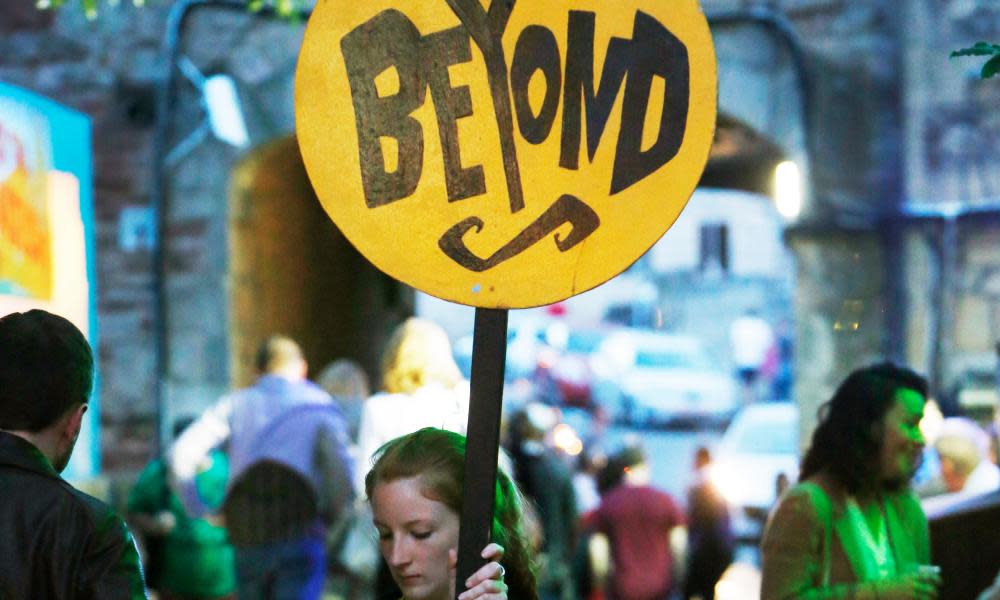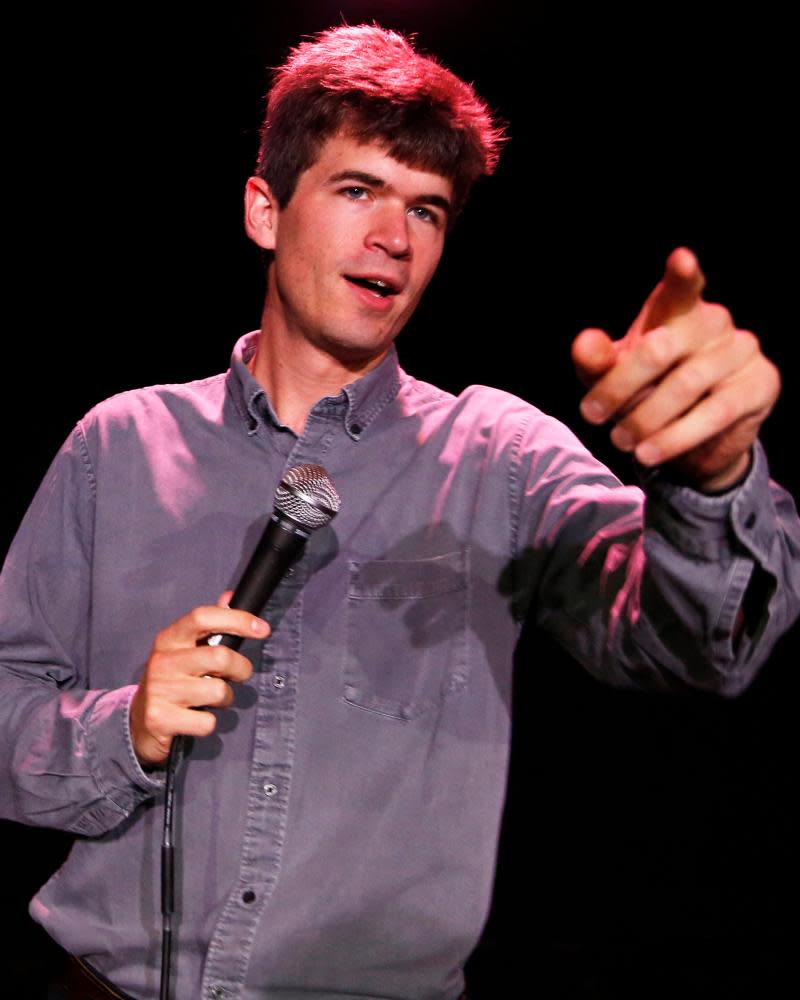Theatres that made us: 'I've wrestled, climbed the walls and got a black eye'

‘An army of sleep-deprived teenagers’

Ivo Graham: Any mention of the Pleasance should come with the obligatory disclaimer that Edinburgh Fringe Does Exist Beyond The Courtyard You Know. But then I have performed more in, or rather Beside/beneath/beyond, the Pleasance Courtyard than anywhere else in my career. I am extremely grateful to all those who have programmed those shows, all those who have attended them and the vast army of sleep-deprived teenagers holding the whole thing together. (My 18-year-old brother’s stint on the box-office team in 2013 was an insider-trading masterclass). I can trace my major life developments through the Pleasance rooms I’ve banged on about them in (driving licence – Cabaret Bar, 2010; virginity loss – Cellar, 2013; expiry of young person’s railcard – Beneath, 2017; becoming a father – Forth, 2019). Hopefully I’ll be back in another of them next year, trying and probably failing to avoid the C-word.
Ivo Graham’s Game of Life UK tour has been rescheduled. Read more about Pleasance Courtyard.
‘It feels like home and always will’
Nadia Albina: I have laughed, cried, wrestled, climbed walls, downed beers and got a black eye at the Lyric Hammersmith. It is a place packed full of memories. In 2013, I was a part of Secret Theatre, a year-long experiment to make theatre in a different way. It was the first time I felt part of a family, a dysfunctional and combative one at times but grounded in love, respect and passion. It became my home for two years. I have spent more time in that building than in any other theatre. You don’t expect to find a gorgeous Victorian theatre at the centre. It is as if it knows it has surprised you. It has a rebellious feeling. And that rubs off on you. It feels like home and I think always will.
Nadia Albina stars in the Royal Shakespeare Company’s Othello and Merchant of Venice on BBC iPlayer. Read more about the Lyric Hammersmith.
‘No room to hide’
Charlotte Bennett: Hailing from Yorkshire and moving to London when I was 21, it perhaps seems strange that my second theatre home became Newcastle. But I am so grateful that it did. Gez Casey, the literary manager at Live theatre, invited my old theatre company to develop a play there in 2009, giving us a home and support long before anyone knew if we were any good. I travelled up on the Megabus for £1.50 and quickly fell in love with the city and the theatre. Live theatre was born from a working-class arts movement in Newcastle. Its roots speak to me most and fill the auditorium with its generous, honest energy. The cabaret-style tables that gather round the corner stage leave no room to hide or to ever be pretentious. I worked there for a number of years, including with the incredible Open Clasp company which gave me one of my all-time favourite theatre memories – a play I directed about the care system for elderly people ended with a voice recording from the milk snatcher. Every night, audiences would shout back at the sound system. An honest, political, heart-on-sleeve theatre.
Charlotte Bennett is the co-artistic director of Paines Plough. Read more about Live theatre.
‘They understood us immediately’
Cherylee Houston: Very early on in our journey with DANC (Disabled Artists Networking Community), Manchester’s 53two donated us their space for an event. They understood us immediately and a series of groundbreaking initiatives followed: venue founder Simon Naylor hand-built a ramp to the stage and within weeks our members were in monologue slams, performances, rehearsals and training – participating throughout their programme. When 53two revealed their plans for their new building, Simon and co-founder Alex Maxwell matter-of-factly announced that it would be entirely step-free and house a Changing Places toilet (hoist and changing bed): the only theatre in Manchester to have one. This attitude reflects their commitment to nurture every artist across the board. I hold them so dear in my heart: grassroots creative leaders, their hands-on ideology demonstrates a genuine artistic commitment to everyone.
Cherylee Houston is co-founder of TripleC/DANC, who have released three audio plays in collaboration with Oldham Coliseum. Read more about 53two.
‘Even when it’s empty you feel the energy’
Sharon Watson: Leeds is my home town. I was born here and from this city I have carved out a career which removed the borders of my location and gave me an international reach. The Riley theatre – known to many as the synagogue on Chapeltown Road – was an intrinsic part of my growth before I became a professional dancer, and is at the heart of Northern School of Contemporary Dance. It has hosted many visiting dance companies and is also a classroom for many students who have their first real experience in a theatrical environment. I have presented and experienced some of the most beautiful dance performances in this theatre. It has launched the careers of some of the most inspiring and innovative dance makers we have. I just love the atmosphere. Even when it’s empty you feel the creativity energy.
Sharon Watson is CEO and principal of Northern School of Contemporary Dance. Read more about the Riley theatre.
‘They made me feel anything was possible’
Michael Patrick: Accidental theatre is a venue that holds a special place in my heart and in the ecosystem of Belfast theatre. When I moved back to Belfast after training in London I felt lost and didn’t have any real connections. Accidental theatre couldn’t have been more helpful. They were doing anything and everything, running scratch nights, interactive theatre shows, gigs, workshops, traditional theatre – all in a makeshift venue on the third floor of an office block. Their “let’s make it happen” attitude was infectious. They made me feel like anything was possible and I sincerely thank them for that. They’ve since moved to the old bank building in Belfast’s Shaftesbury Square, where we rehearsed My Left Nut before taking it to the Edinburgh fringe. They are not just an incredible fringe theatre, but a beautifully creative place which brings people together and inspires them to make new and exciting art.
Michael Patrick will appear at Accidental’s No Touching theatre festival, 16-18 September.


